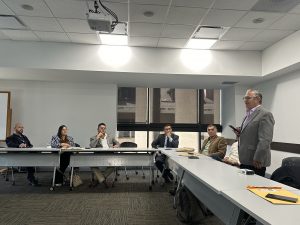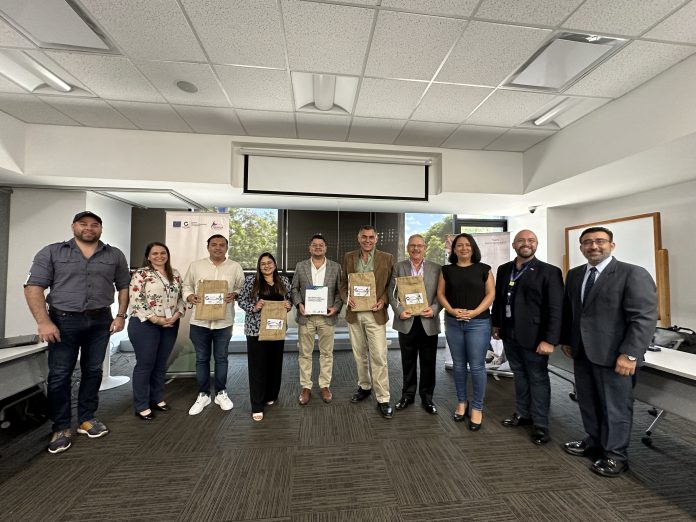From the Sustainable Tourism Commission -COMITURS- of AGEXPORT, the agrotourism cluster was formed, which seeks to promote tourist services such as coffee tours on agricultural farms.
Last Thursday, September 28, the consultancy closed, in which four Guatemalan coffee-producing farms and members of the commission were benefited by the Expert Consulting Services -SEC- of AGEXPORT and Swisscontact, to receive advice on the implementation of tourist services within the farms.
The benefited coffee producing farms are: El Durazno in San Pedro Pinula, Jalapa; Pampojilá, in San Lucas Tolimán, Sololá; Rabanales States, in Fraijanes, Guatemala and El Pantanal, in Cuilapa, Santa Rosa. The topography of each farm provides certain characteristics, products, and differentiated services, which makes them a very attractive tourist destination.
The consultancy was based on providing an expanded perspective to the farms of their current situation with respect to their potential in tourism services. According to Dagmar Moreno, COMITURS Coordinator, the report indicates which tourism products can be implemented and shows a financial analysis of the investments necessary to create these products.
Each farm received a report that will guide the route to turn potential tourism services into a reality. “These new tourist destinations based on agrotourism will be able to make alliances with tour operators to offer national and international tourists new coffee farms to visit, which are located in culturally rich territories in Guatemala,” commented Colin Banning, Deputy Country Director. at Swisscontact Guatemala.
Guillermo Rodríguez, Marketing Manager of Guaterroir and key leader in this project, indicated that with these consultancies the objective is to promote sustainable coffee tourism and with this, publicize Guatemalan coffee with brand, regions and thus show tourists where it comes the coffee you drink.
Tourism and sustainability
The impact that would be generated by the proposed changes is great. Andrea Cuellar, SEC consultant, details: “Sustainability becomes a transversal axis to achieve the preservation of the ecosystem of each farm, its economic development and the integration of each local community, and thus over time achieve equitable development within the pillars of sustainability.”
With this analysis, it is expected to be able to enhance the tourist attraction of each farm and thus export its services and Guatemalan coffee.







